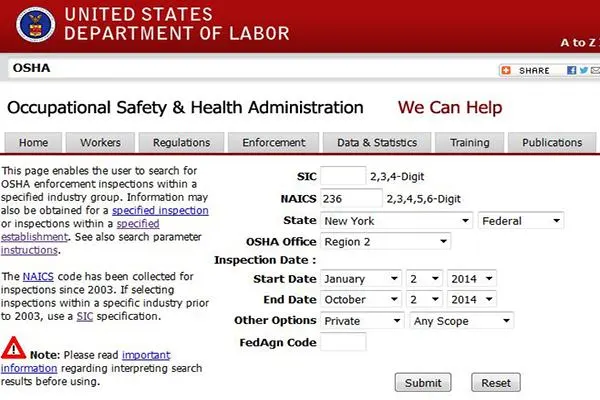The U.S. Department of Justice (DOJ) announced last month that it is teaming up with the Department of Labor “to investigate and prosecute worker endangerment violations.” As explained in the DOJ’s news release, current worker safety statutes generally provide for only misdemeanor penalties. Now, prosecutors are “encouraged to consider utilizing Title 18 and environmental offenses, which often occur in conjunction with worker safety crimes, to enhance penalties and increase deterrence. ” As explained in the analysis presented by attorneys Mark Milton and Matthew Sharp, Title 18 offenses include false statements, obstruction of justice, witness tampering, and conspiracy (offenses outlined in a memo sent by the Deputy Attorney General to all U.S. Attorney’s offices).
The warning is clear: Companies must increasingly take worker safety violations seriously. Specifically, if cited for a workplace safety violation, OSHA has increased authority to involve federal prosecutors in scrutinizing your company’s internal investigations related to the violation. Milton and Sharp suggest that failure to take the violation seriously, or careless internal communications, could turn “a relatively minor OSHA violation into a felony case.” Above all else, a company needs to avoid any action or communication that might be deemed a false statement to agency investigators, obstruction of justice, witness tampering, or conspiracy for attempting to cover up a violation. According to Milton and Sharp, “prosecutions of this nature would involve serious felony charges carrying criminal penalties ranging from five to 20 years in prison, along with huge criminal fines. For companies convicted of felonies, or misdemeanor offenses resulting in death, the fine for each offense could be as much as $500,000.”
Milton and Sharp also warn that “safety incidents stemming from potential environmental violations may draw more attention from federal prosecutors.” It’s not spelled out exactly what “potential environmental violations” might mean. It probably signals that mining operations, road work, bridge work, and large-scale environmental cleanup operations will be scrutinized more carefully for worker protections. A list of “environmental crimes” that are prosecuted by the Environmental and Natural Resources Division of the DOJ (which has been given operational control of the new worker safety initiative with DOL) gives us a good idea of the type of work that might be scrutinized. But for residential jobs, it begs the question of whether safety violations on jobs involving RRP work, or excavation work where storm-water controls are required, would be by prosecuted more vigorously.



